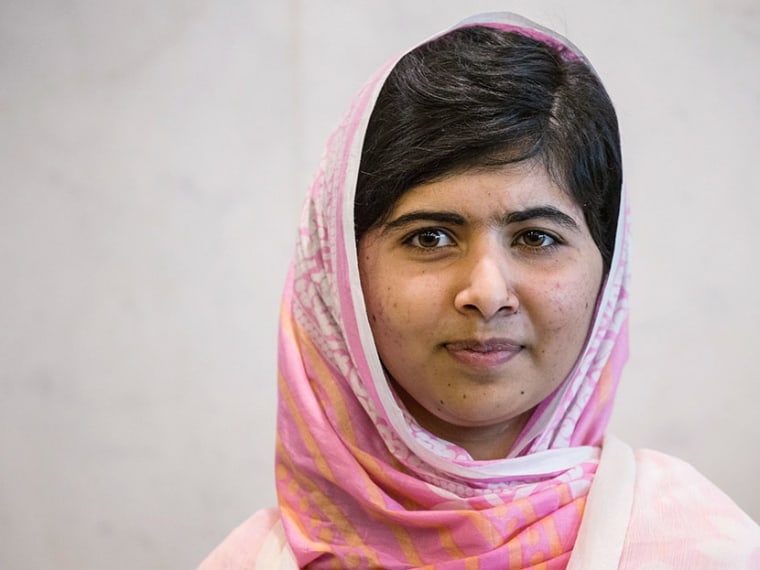On October 9th, 2012, then-15 year old Malala Yousafzai was shot in the head by Taliban gunmen as punishment for advocating female education.
Friday–on her 16th birthday–the teenager addressed a stunned crowd at the United Nations, continuing her activism.
“Malala Day is not my day,” she said. “Today is the day of every woman, every boy and every girl who have raised their voice for their rights.”
Progress in the fight for female education in Pakistan has seen vast Taliban opposition, particularly in recent years. Over 800 schools in the country have been attacked in the past four years, leading some areas to protect their institutions by constructing walls and supplying armed guards.
But the assassination attempt that afternoon nine months ago was personal. Since 2009, Malala had contributed to a blog for the BBC about living under the threat of the Taliban; to retaliate, terrorists stopped the school bus transporting Malala and wounded the activist and two of her classmates. Upon hearing that Malala was in critical condition, extremists subsequently reiterated their vow to kill the girl or her father.
Malala was transported to Britain where she underwent a series of operations on her broken skull. She has since recovered from her near-fatal injuries, and in the intervening months received a Nobel Peace Prize nomination–she is the youngest nominee in history–and resumed her studies.
Despite the horrors she has endured, Malala says she bears no grudge against those who harmed her. The experience has only served to reinforce the young woman’s message.
“Dear sisters and brothers, I am not against anyone,” Malala said at today’s conference. “Neither am I here to speak in terms of personal revenge against the Taliban or any other terrorist group. I am here to speak up for the right of education of every child. I want education for the sons and daughters of all the extremists, especially the Taliban.”
Malala kept positive throughout her speech, emphasizing “the importance of light when we see darkness.” She stressed the significance of compassion and fighting for one’s rights.
“This is the forgiveness that I have learned from my father and from my mother,” Malala said. “This is what my soul is telling me. Be peaceful and love everyone.”
Malala added, “The terrorists thought they would change our aims and stop our ambitions. But nothing changed in my life except this: weakness, fear and hopelessness died. Strength, power and courage was born.”
